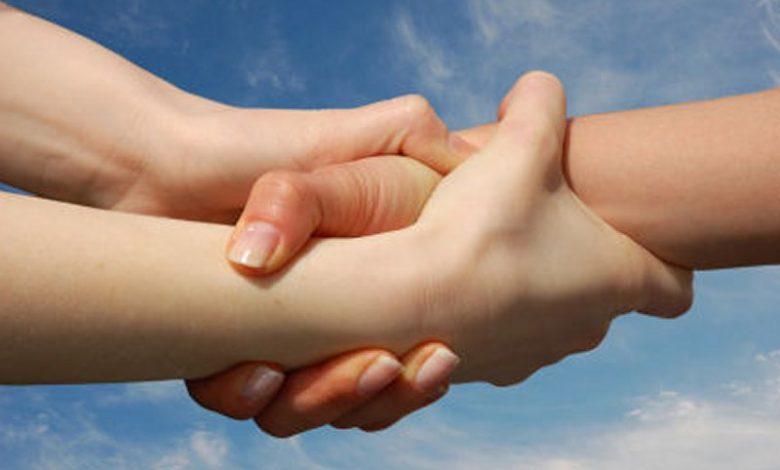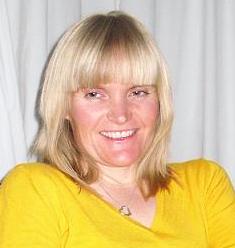
Life lessons learnt through sight loss
New Disability Horizons contributor, Steph Cutler, who developed unexpected sight loss in 2003, talks about how her experiences have shaped her career as a life coach, and how she aims to help others do the same.
As a life coach I tend to concentrate on the future. Clients come to me because they want to move forward with an aspect of their life.
While we may acknowledge the past, we do not dwell on it and instead focus on opportunities and future plans. There is, however, an exception to this unwritten rule. Looking back can be a useful exercise providing we do so to see how far we have come and to acknowledge our successes. If we don’t occasionally look back we may miss opportunities to recollect great times and the lessons we learn along the way.
I took a leaf out of my own book and cast my mind back; it was actually good to remember some important occasions and it highlighted some of the difficult times and how far I have come.
 In 2003, unexpectedly, I developed sight loss. As a reaction to this, I have compelled myslef to focus on the “now” and how I can adapt to the changes. At a time when my good eye remained good, so my overall sight was unaffected, it was a matter of a waiting game to see when my sight would be fully affected.
In 2003, unexpectedly, I developed sight loss. As a reaction to this, I have compelled myslef to focus on the “now” and how I can adapt to the changes. At a time when my good eye remained good, so my overall sight was unaffected, it was a matter of a waiting game to see when my sight would be fully affected.
Not knowing quite what to do or how long I would have to wait until I fully lost my sight, I decided to apply for work. At the time I was a fashion designer, so I worked hard on a new portfolio and secured a job with a well known high street retailer. It was a great next step for me. The position gave me more opportunities to travel, more money and more responsibility and I relocated back to London with enthusiasm.
I started on a Monday and it was evident by Wednesday that my sight loss was greater than I had realised. Looking back I think I had been denying the severity of my disability to myself. I wasn’t doing this consciously, but I think I was concentrating on what I could see rather than what I couldn’t.
Maybe my sight got worse quickly or maybe it was being in a work situation that made it more evident. For example, I was given a tiny laptop to work on and I could not see the screen or keyboard. It wasn’t until I was asked to colour match, which requires making sure that colours are the same throughout a process, that I realised I couldn’t identify colour well. Either way, I didn’t make it to the end of my first week.
Afterwards, I was left feeling lost and so I called a good friend, who came to meet me and take me to the London Eye to help me cheer up. I had never been on the London Eye before so it was a brilliant opportunity to see the city I love. The timing couldn’t have been better as I didn’t know how much sight I would be left with.
As we crossed the bridge over the river Thames we walked past a man on bended knee proposing to his delighted girlfriend. I distinctly remember thinking to myself that while I am having a bad day, this couple were having a fantastic day.
I looked at them and thought, today is a memorable day for both of us but for totally different reasons. Since then I have never thought, “there’s always someone worse off than me” to make myself feel better. I know people say this to themselves for motivation, but I don’t really understand this. Why take solace from knowing others are worse off than you?
From then on I have reminded myself, and those I coach, that while I may be having a bad day, my amazing day will come, like that couple. This motivates me and feels like a better way to look at things.
As we got to the London Eye my friend produced a mini bottle of champagne. Looking back, it is questionable what we were celebrating but it seemed a nice gesture! I don’t think I wanted tea and sympathy, perhaps she knew a bit of bubbly was the way to go! We smuggled our bottle past security and onto the capsule and drank it out of paper cups we had scrounged from the café stand. We drank and gossiped the whole way round the circuit.
When we got off I laughed to myself because I hadn’t looked out at the view once! There I was with possibly my last chance to fully experience the famous sights of London and I had not done so. I realised there and then that friendship was far more important than sight. A view is a view, but if you have no one to share it with (or in my case ignore it with!) then what good is full sight and beautiful views?
These things have stuck with me ever since and helped me understand what is important in life. You will have bad days but your good days will come and as long as you have great people to share both with, you will always be alright.
To get in touch with Steph, visit her website, Making Lemonade.
By Steph Cutler
If you have a story you’d like to share, get in touch by emailing us at editor@disabilityhorizons.com, tweeting us at @DHorizons or messaging us on Facebook.